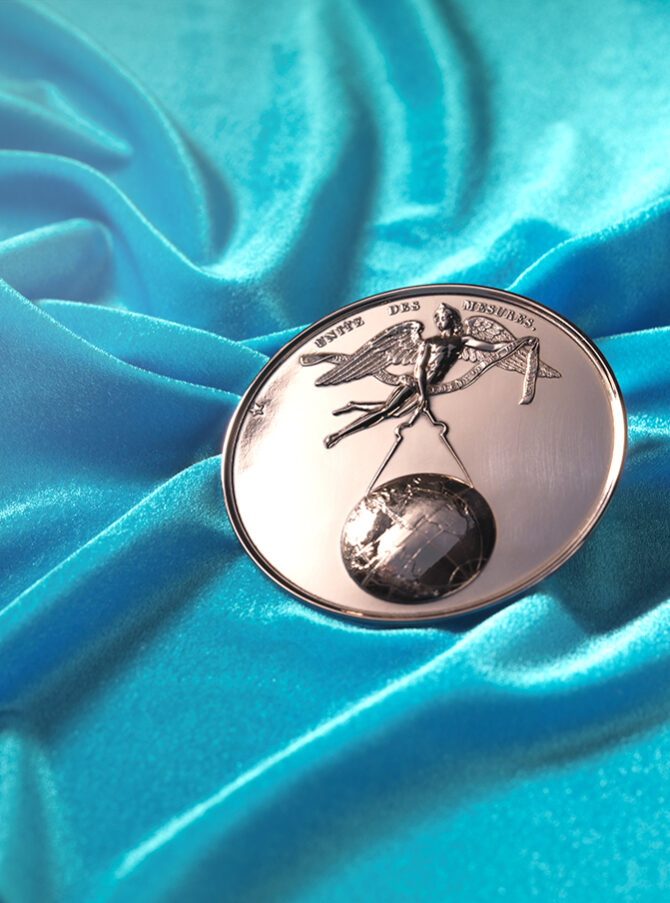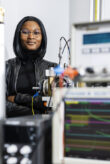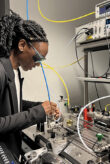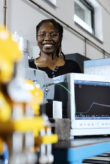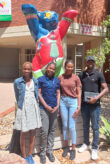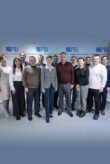As PTB, we have been working for 60 years on behalf of the Federal Government with developing and emerging countries to promote sustainable economic, social and ecological development. We are thus one of the four governmental implementing organisations of development cooperation (DC) in Germany.
In DC, we distinguish between two types of projects. Bilateral cooperation is agreed in government negotiations between the donor and recipient country. PTB cooperates with supranational associations and organisations such as the African Union in regional or supraregional projects. The emphasis in both project types is on strengthening and developing metrology and an effective quality infrastructure. We work according to internationally recognised ‘good practices’ and use the opportunities of digitalisation through new formats and media.
Division 9 Legal and International Metrology does important work in the field of legal and industrial metrology. Its field of activity includes not only cooperation with the German verification authorities, but also the coordination of international cooperation in the field of quality infrastructure and is the first point of contact for the Federal Government.
Thanks to the dedicated work of PTB Division 9, it is ensured that high standards are maintained in Germany and beyond with regard to measurements and calibrations. Cooperation with accredited calibration laboratories ensures that measurements are precise, reliable and traceable.
It is impressive how much work and coordination goes into these processes. The work of this department helps to ensure that products and services meet the highest standards.
Group 9.3 International Cooperation is part of this division and promotes the establishment and expansion of a high-quality infrastructure in developing and emerging countries. Our partnership-based, systemic- and needs-oriented project approach contributes to the harmonisation of international metrology and promotes sustainable development. Our partner countries thus, have the opportunity to strengthen their scientific and technical capabilities and to adapt their national standards and regulations to international standards.
From the large number of projects and events in connection with 60 years of technical cooperation, two topics are selected here as representative of many that would also be worth mentioning.
With some of the current signatory states of the Metre Convention, there has been long-term project cooperation that continues to have a positive impact long after the actual duration of the projects has come to an end. Kenya can be mentioned here as an example.
The cooperation between PTB and the Kenya Bureau of Standards (KEBS) in Nairobi was a successful bilateral project from 1979 to 1991 for the development of a centre for metrology and quality assurance.
The association of Kenya in September 2002 and the membership from January 2010 in the Metre Convention underline the impact of this cooperation.
Although there is no joint bilateral project with Kenya today, there continues to be a close link through the regional projects of PTB’s Africa Unit with KEBS.
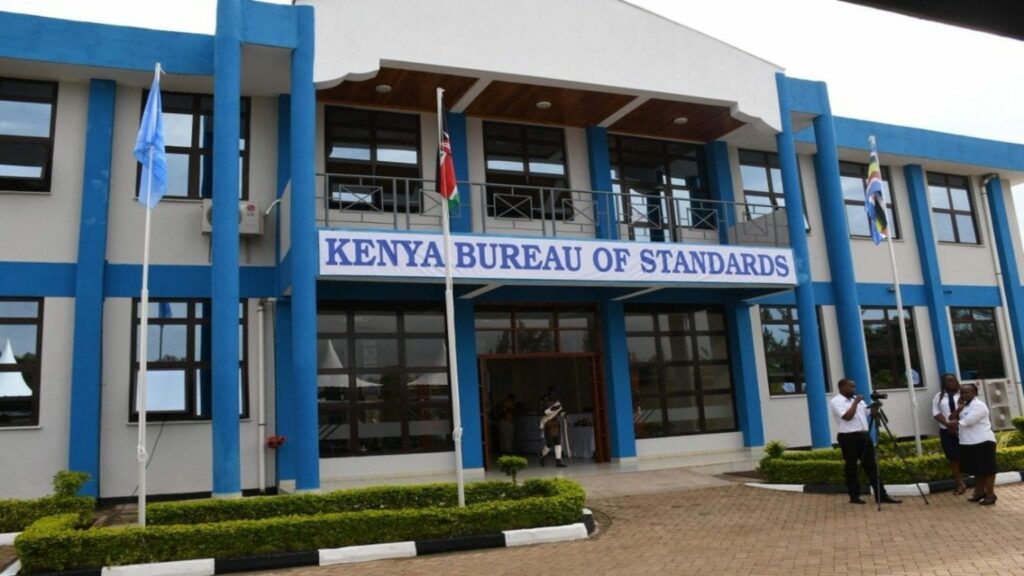
As a founding member of the Metre Convention, Argentina has a long tradition in metrology.
The connection between the Instituto Nacional de Tecnología Industrial, INTI for short, in Buenos Aires and PTB is particularly visible in the person of Dr. Héctor Laiz. Dr Laiz is a physicist in the field of electricity and obtained his diploma in Buenos Aires in 1988. In the 1990s, he was a visiting scientist in PTB’s Division 2 and obtained his doctorate there in 1999 under the supervision of Dr Manfred Klonz. The title of his dissertation thesis is: “Low frequency behaviour of thin film multijunction thermal converters”. Dr Laiz is Director of Metrology, Quality and Environment at INTI and was President of the Inter-American Metrology System (Sistema Interamericano de Metrologia, SIM) until 2009. Today, he is also a member of the International Committee on Weights and Measures (CIPM). He thus makes a decisive contribution to global cooperation in the field of metrology. Héctor Laiz has hence moved from being a laboratory scientist to a manager of metrology. We are very grateful for the many years of cordial collaboration with him.
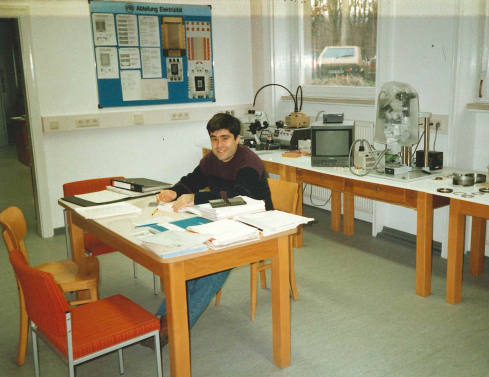

Looking back on the past 60 years fills us with pride that we have made a contribution to the sustainable development of partner countries. It is this retrospect that makes us confident that we will continue to contribute to strengthening the quality infrastructure in developing and emerging countries, so that our world becomes a little better and we move closer together.
Cover image © PTB/Fotografie
The photographed medal dates from 1840. It was minted to commemorate the introduction of the metric system in France. The depicted figure with wings is a genius; genius in the sense of guardian spirit. The motto À tous les peuples, à tous les temps | For all countries, for all times is embossed on the non-visible side. This motto is not least in the background of all the projects carried out.


